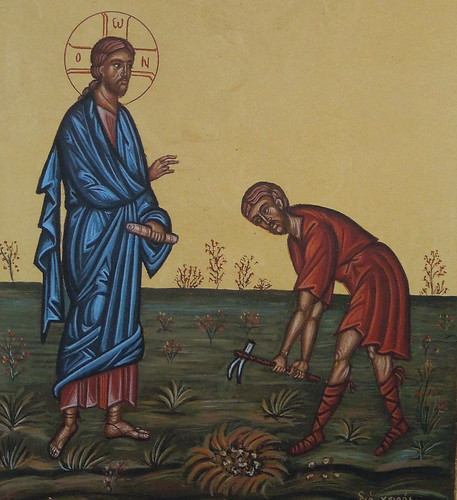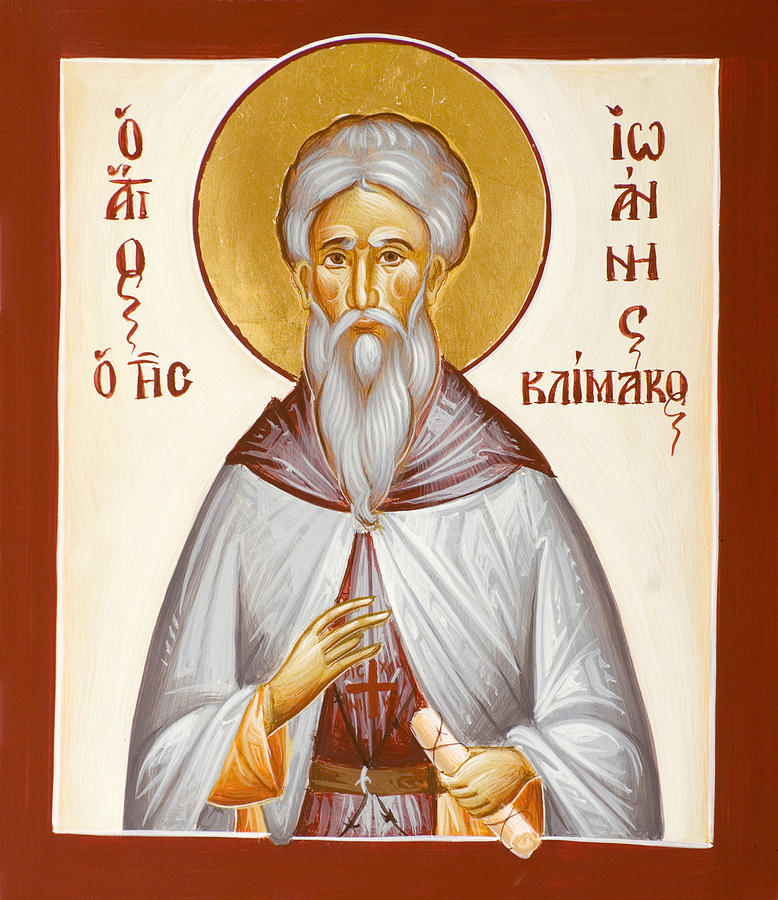 Patristic commentaries on the Lord's Prayer were some of my favorite readings during my patrology course last year. St. Cyprian, who is commemorated today with fellow martyr Pope St. Cornelius, was not the first to compose such a commentary but his has been one of the most influential. Here are some selections from the work:
Patristic commentaries on the Lord's Prayer were some of my favorite readings during my patrology course last year. St. Cyprian, who is commemorated today with fellow martyr Pope St. Cornelius, was not the first to compose such a commentary but his has been one of the most influential. Here are some selections from the work:Before all things, the Teacher of peace and the Master of unity would not have prayer made singly and individually, as for one who prays to pray for himself alone. For we do not say “My Father, which art in heaven,” nor “Give me this day my daily bread;” nor does each ask that only his own debt should be forgiven; nor does he request for himself alone that he may not be led into temptation and delivered from evil. Our prayer is public and common, and when we pray, we pray not for one, but for the whole people, because we the whole people are one. The God of peace and the Teacher of concord, who taught unity, willed that one should thus pray for all, even as He Himself bore us all in one.
But what matters of great import are contained in the Lord’s prayer! How many and how great, briefly collected in the words, but spiritually abundant in virtue so that there is absolutely nothing passed over that is not encompassed in these prayers and petitions, as in a compendium of heavenly doctrine. “Pray ye thus,” He says: "Our Father, which art in heaven.” The new man, born again and restored to God by His grace, says “Father,” in the first place because he has now begun to be a son. But how great is the Lord’s indulgence and goodness towards us, seeing that He has wished us to pray in such a way as to call God Father, and to call ourselves sons of God, even as Christ is the Son of God,—a name which none of us would dare to venture on in prayer, unless He Himself had allowed us thus to pray! We ought then, beloved brethren, to remember and to know, that when we call God Father, we ought to act as God’s children; so that in the measure in which we find pleasure in considering God as a Father, He might also be able to find pleasure in us.
After this we say, “Hallowed be Thy name;” not that we wish God may be hallowed by our prayers, but that we beg that His name may be hallowed in us. Because He says, “Be ye holy, even as I am holy,” we ask and entreat, that we who were sanctified in baptism may continue as that which we have begun to be. And this we daily pray for; for we have need of daily sanctification, that we who daily fall away may wash out our sins by continual sanctification.
There follows in the prayer, "Thy kingdom come." We ask that the kingdom of God may be set forth to us, even as we also ask that His name may be sanctified in us. For when does God not reign, or when does that which always has been and never ceases to be begin with Him? We pray that our kingdom may come, which was acquired by the blood and passion of Christ; that we who first are His subjects in the world, may hereafter reign with Christ when He reigns, as He Himself promises and says, “Come, ye blessed of my Father, receive the kingdom which has been prepared for you from the beginning of the world.”
We add, also, and say, “Thy will be done, as in heaven so in earth;” not that God should do what He wills, but that we may be able to do what God wills. For who resists God, that He may not do what He wills? But since we are hindered by the devil from obeying with our thought and deed God’s will, we pray and ask that God’s will may be done in us; and that it may be done in us we have need of God’s good will, that is, of His help and protection, since no one is strong in his own strength, but he is safe by the grace and mercy of God.
As the prayer goes forward, we ask and say, “Give us this day our daily bread.” And this may be understood both spiritually and literally, because either way of understanding it is rich in divine usefulness to our salvation. For Christ is the bread of life; and this bread does not belong to all men, but it is ours. And just as we say, “Our Father,” because He is the Father of those who believe, so also we call it “our bread,” because Christ is the bread of those who are in union with His body. And therefore we ask that our bread—that is, Christ—may be given to us daily, that we who abide and live in Christ may not depart from His sanctification and body.
After this we also entreat for our sins, saying, “And forgive us our debts, as we also forgive our debtors.” The Lord calls sins debts, as He says in His Gospel, “I forgave thee all that debt, because thou desired me.” Lest any one should flatter himself that he is innocent, and by exalting himself should more deeply perish, he is taught that he sins daily by being bidden to entreat daily for his sins. Thus, John also in his epistle warns us, and says, “If we say that we have no sin, we deceive ourselves, and the truth is not in us; but if we confess our sins, the Lord is faithful and just to forgive us our sins.” He who taught us to pray for our debts and sins, has promised that His fatherly mercy and pardon shall follow. He has here clearly added the law and bound us by a certain condition, that we should ask that our debts be forgiven us in such a manner as we ourselves forgive our debtors, knowing that that which we seek for our sins cannot be obtained unless we ourselves have acted in a similar way in respect of our debtors. Therefore also He says in another place, “With what measure ye mete, it shall be measured to you again.” And the servant who, after having had all his debt forgiven him by his master, would not forgive his fellow-servant, is cast back into prison; because he would not forgive his fellow-servant, he lost the indulgence that had been shown to himself by his lord. “When ye stand praying,” He says, “forgive if ye have aught against any, that your Father which is in heaven may forgive you your trespasses. But if ye do not forgive, neither will your Father which is in heaven forgive you your trespasses.”
Moreover, the Lord of necessity admonishes us to say in prayer, “And suffer us not to be led into temptation.” In which words it is shown that the adversary can do nothing against us except what God shall have previously permitted; so that all our fear, and devotion, and obedience may be turned towards God, since in our temptations nothing is permitted to evil unless power is given from Him.
After all these things, in the conclusion of the prayer comes a brief clause which briefly and comprehensively sums up all our petitions and our prayers. For we conclude by saying, “But deliver us from evil,” encompassing all adverse things which the enemy attempts against us in this world, from which there may be a faithful and sure protection if God deliver us. For when we say, "Deliver us from evil," there remains nothing further which ought to be asked. When we have once asked for God’s protection against evil, and have obtained it, then against everything which the devil and the world work against us we stand secure and safe. For what fear is there in this life, to the man whose guardian in this life is God?
What wonder is it, beloved brethren, if such is the prayer which God taught, seeing that He condensed in His teaching all our prayer in one saving sentence? For when the Word of God, our Lord Jesus Christ, came unto all, and gathering alike the learned and unlearned, published to every sex and every age the precepts of salvation, He made a large compendium of His precepts, that the memory of the scholars might not be burdened in the celestial learning, but might quickly learn what was necessary to a simple faith.
Cyprian of Carthage (d.258): On the Lord's Prayer (Excerpts)













